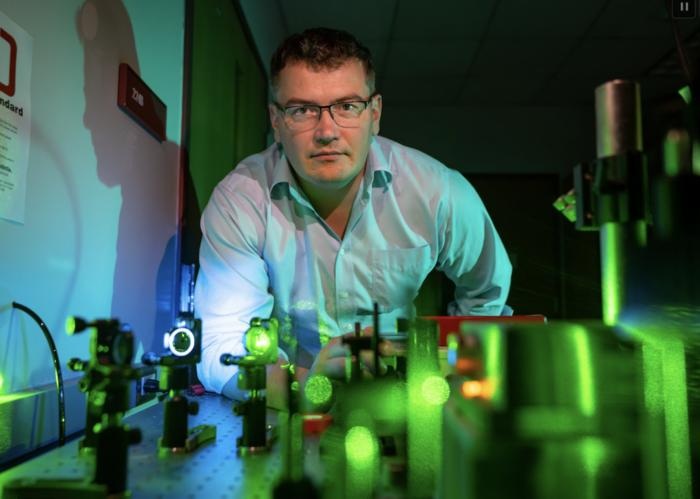Effects Questionable for Shoulder Impingement Arthroscopy
|
By HospiMedica International staff writers Posted on 31 Jul 2018 |
A new study suggests that arthroscopic subacromial decompression (ASD) is no more effective than non-operative alternatives and exercise therapy.
Researchers at the University of Helsinki (Finland), Töölö Hospital (Helsinki, Finland), Lund University (Sweden), and other institutions conducted a randomized, sham controlled trial to compare ASD, placebo diagnostic arthroscopy, and exercise therapy at three public hospitals in Finland. The study participants included 210 patients with symptoms consistent with shoulder impingement syndrome. The main outcome measure was shoulder pain at rest and on arm activity at 24 months, as measured by a visual analog scale (VAS).
None of the patients, hospital staff or the researchers who analyzed the results knew which patient was in each group. The results showed no clinically relevant differences between groups at 24 months follow-up in main or secondary outcomes measures or adverse events. In the comparison between ASD and exercise therapy at 24 months, statistically significant differences were found in favor of ASD in both shoulder pain at rest and on arm activity outcomes, but the differences did not exceed the pre-specified minimal clinically important difference. The study was published on July 19, 2018, in BMJ.
“We should question the current line of treatment, according to which patients with shoulder pain attributed to shoulder impingement are treated with decompression surgery, as it seems clear that instead of surgery, the treatment of such patients should hinge on non-operative means,” said senior author Professor Teppo Järvinen, MD, of the University of Helsinki. “By ceasing the procedures which have proven ineffective, we would avoid performing hundreds of thousands useless surgeries every year in the world.”
The most common diagnosis for shoulder pain that requires treatment is shoulder impingement, and the most common surgical treatment is ASD. Previous studies have also shown that ASD of the shoulder does not alleviate the symptoms of patients any better than physiotherapy. Paradoxically, however, the number of decompression surgeries is increasing significantly, even though solid proof of the impact of the surgery on the symptoms has been lacking.
Related Links:
University of Helsinki
Töölö Hospital
Lund University
Researchers at the University of Helsinki (Finland), Töölö Hospital (Helsinki, Finland), Lund University (Sweden), and other institutions conducted a randomized, sham controlled trial to compare ASD, placebo diagnostic arthroscopy, and exercise therapy at three public hospitals in Finland. The study participants included 210 patients with symptoms consistent with shoulder impingement syndrome. The main outcome measure was shoulder pain at rest and on arm activity at 24 months, as measured by a visual analog scale (VAS).
None of the patients, hospital staff or the researchers who analyzed the results knew which patient was in each group. The results showed no clinically relevant differences between groups at 24 months follow-up in main or secondary outcomes measures or adverse events. In the comparison between ASD and exercise therapy at 24 months, statistically significant differences were found in favor of ASD in both shoulder pain at rest and on arm activity outcomes, but the differences did not exceed the pre-specified minimal clinically important difference. The study was published on July 19, 2018, in BMJ.
“We should question the current line of treatment, according to which patients with shoulder pain attributed to shoulder impingement are treated with decompression surgery, as it seems clear that instead of surgery, the treatment of such patients should hinge on non-operative means,” said senior author Professor Teppo Järvinen, MD, of the University of Helsinki. “By ceasing the procedures which have proven ineffective, we would avoid performing hundreds of thousands useless surgeries every year in the world.”
The most common diagnosis for shoulder pain that requires treatment is shoulder impingement, and the most common surgical treatment is ASD. Previous studies have also shown that ASD of the shoulder does not alleviate the symptoms of patients any better than physiotherapy. Paradoxically, however, the number of decompression surgeries is increasing significantly, even though solid proof of the impact of the surgery on the symptoms has been lacking.
Related Links:
University of Helsinki
Töölö Hospital
Lund University
Latest Surgical Techniques News
- World's First Transcatheter Smart Implant Monitors and Treats Congestion in Heart Failure
- Hybrid Endoscope Marks Breakthrough in Surgical Visualization
- Robot-Assisted Bronchoscope Diagnoses Tiniest and Hardest to Reach Lung Tumors
- Diamond-Titanium Device Paves Way for Smart Implants that Warn of Disease Progression
- 3D Printable Bio-Active Glass Could Serve as Bone Replacement Material
- Spider-Inspired Magnetic Soft Robots to Perform Minimally Invasive GI Tract Procedures
- Micro Imaging Device Paired with Endoscope Spots Cancers at Earlier Stage
- AI Spine Model Could Reduce Surgical Risks
- Novel Method Uses Interstitial Fluid Flow to Predict Where Brain Tumor Can Grow Next
- World’s First Custom Anterior Cervical Spine Surgery Performed Using Personalized Implant
- Implantable Biodegradable Scaffold Helps Broken Bones Regrow Quickly
- First Human Spinal Cord Repair Using Patient Own Cells Could Cure Paralysis
- 'Dual-Mode' Tracer Enables Surgeons to See and Hear Prostate Cancer
- Pioneering One-Stage Hybrid Surgery Ensures Safer Outcomes in Brain and Spine Tumors
- Reimplanting Lab-Grown Patient Cartilage Accelerates Healing After Hip Surgery
- Diamond-Based Sensor Pinpoints Metastasized Cancer for Surgical Removal
Channels
Critical Care
view channel
AI Tool Reduces Serious Complications and Readmissions After Colorectal Cancer Surgery
Readmissions and complications after colorectal cancer surgery remain a major challenge for both patients and healthcare systems. These setbacks increase suffering, prolong recovery, and result in high... Read moreTime-Released Gel Eliminates Residual Brain Tumor Cells Post Resection
High-grade gliomas are among the most aggressive brain tumors, with a poor prognosis even after surgical removal. Standard chemoradiotherapy only modestly improves survival, while infiltrative residual... Read morePatient Care
view channel
Revolutionary Automatic IV-Line Flushing Device to Enhance Infusion Care
More than 80% of in-hospital patients receive intravenous (IV) therapy. Every dose of IV medicine delivered in a small volume (<250 mL) infusion bag should be followed by subsequent flushing to ensure... Read more
VR Training Tool Combats Contamination of Portable Medical Equipment
Healthcare-associated infections (HAIs) impact one in every 31 patients, cause nearly 100,000 deaths each year, and cost USD 28.4 billion in direct medical expenses. Notably, up to 75% of these infections... Read more
Portable Biosensor Platform to Reduce Hospital-Acquired Infections
Approximately 4 million patients in the European Union acquire healthcare-associated infections (HAIs) or nosocomial infections each year, with around 37,000 deaths directly resulting from these infections,... Read moreFirst-Of-Its-Kind Portable Germicidal Light Technology Disinfects High-Touch Clinical Surfaces in Seconds
Reducing healthcare-acquired infections (HAIs) remains a pressing issue within global healthcare systems. In the United States alone, 1.7 million patients contract HAIs annually, leading to approximately... Read moreHealth IT
view channel
Printable Molecule-Selective Nanoparticles Enable Mass Production of Wearable Biosensors
The future of medicine is likely to focus on the personalization of healthcare—understanding exactly what an individual requires and delivering the appropriate combination of nutrients, metabolites, and... Read moreBusiness
view channel
Philips and Masimo Partner to Advance Patient Monitoring Measurement Technologies
Royal Philips (Amsterdam, Netherlands) and Masimo (Irvine, California, USA) have renewed their multi-year strategic collaboration, combining Philips’ expertise in patient monitoring with Masimo’s noninvasive... Read more
B. Braun Acquires Digital Microsurgery Company True Digital Surgery
The high-end microsurgery market in neurosurgery, spine, and ENT is undergoing a significant transformation. Traditional analog microscopes are giving way to digital exoscopes, which provide improved visualization,... Read more
CMEF 2025 to Promote Holistic and High-Quality Development of Medical and Health Industry
The 92nd China International Medical Equipment Fair (CMEF 2025) Autumn Exhibition is scheduled to be held from September 26 to 29 at the China Import and Export Fair Complex (Canton Fair Complex) in Guangzhou.... Read more














